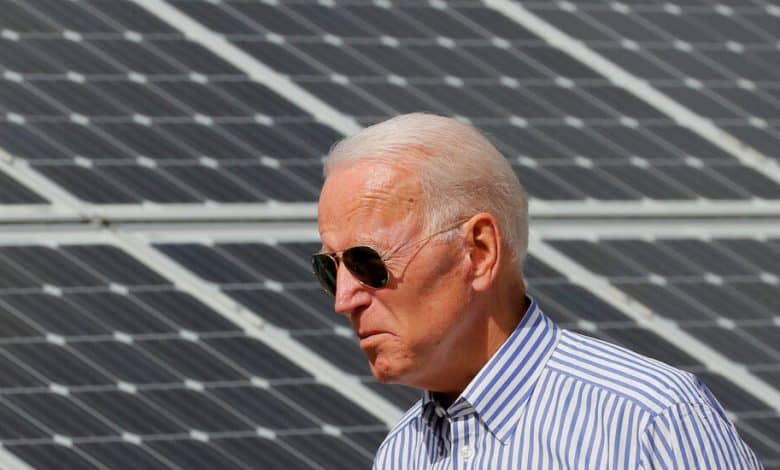Will Biden’s Trade War With China Get Results?


President Biden has added solar cells and electric vehicles to Washington’s trade war with Beijing.Credit…Brian Snyder/Reuters
Biden fires a new round at China
President Biden announced on Tuesday a wave of new tariffs on billions of dollars in Chinese products, ramping up duties on industries like electric cars and solar energy that are core to his economic agenda.
The restrictions build on Trump-era measures, and many are likely to appeal to voters in battleground states ahead of the election. But it’s less clear if they are enough to rebuild America’s industrial base in a global race with China to lead in the new economy.
The new duties will apply to about $18 billion of annual Chinese imports, the Biden administration said. The president will also pledge to keep tariffs on more than $300 billion worth of Chinese goods put in place by President Donald Trump — measures that Biden said in his 2020 election campaign had hurt American consumers.
Here’s what the new package looks like:
-
Tariffs on Chinese-made E.V.s, which are essentially locked out of the U.S. market anyway, will quadruple to 100 percent from 25 percent.
-
Rates on solar cells and semiconductors will double to 50 percent.
-
Duties on some advanced batteries and the key components used to make them will rise to 25 percent.
-
And tariffs on certain steel and aluminum products will triple to 25 percent.
Biden is at pains to say that he’s being smarter than Trump on China. Trump imposed sweeping trade barriers and has vowed to impose more if he’s re-elected. Biden has focused on specific sectors, including chips, artificial intelligence and clean energy. Trump spurned allies, while Biden has cultivated them and says his policies aren’t broadly anti-China.
China could argue that the U.S. is playing catch up. Beijing has invested for years to become self-sufficient in the same high-tech sectors Biden is trying to bolster at home. It produces cheaper products that much of the rest of world wants, especially in countries that feel neglected by the West.
Tariffs may not bolster domestic manufacturing. Joseph Stiglitz, the Nobel Prize-winning economist, credits Biden for trying to reverse decades of deindustrialization, especially with a Republican-controlled House limiting what he can do.
